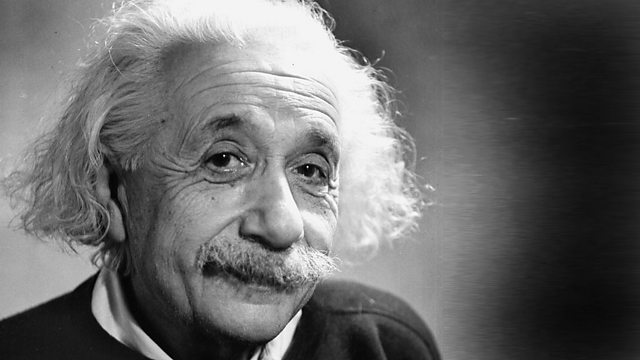We honour Einstein for developing the special theory of relativity. Time is the fourth dimension and nothing travels faster than the speed of light, although he did not develop the equations. That was the interpretation, the story told by the equations, and this holds true for every other physics theory as well. It's different with quantum mechanics. We are in possession of the quantum mechanical equations, but we cannot agree on their interpretation.
Since Schrodinger's equation is the most well-known, we can
turn the handle and derive numbers from it, but the narrative, the story, and
the explanation are still up for debate. That bothers me, too. When quantum
mechanics emerged, it wasn't because physicists were sitting around scratching
their heads wondering if there must be a deeper understanding of the nature of
reality. By the end of the 19th century, it was already known that we needed
some new physics to explain mysterious phenomena, such as X-ray-like radio
activity, that energy seemed to be coming out of nowhere, to understand the
behaviour or the structure of the atom.
We'll think of quantum mechanics. It was imposed upon
physicists as a result of mysterious experimental results. The world is hazy
and probabilistic. Particles aren't discrete, small lumps, and they
occasionally act like dispersed waves of probability. Atoms can have two
energies at once, electrons may be in two positions at once, and nothing ever
behaves in a single manner for sure. Actually, it's much lower than anything we
can picture or fathom.
When you get down to the scale of individual cells or
bacteria or, for that matter, a billionth of a metre, you start to experience
the fuzziness of the quantum world. As an example, consider a tennis ball that
is subject to Newtonian mechanics. As you get smaller and smaller, you will
eventually encounter this fuzziness.
The pioneers of quantum mechanics, including the Danish
physicist Niels Bohr, Werner Heisenberg, and Wolfgang Pauli, were active in the
1920s. Eventually they came to the realisation that while they could anticipate
the outcomes of measurements, the link to the outside world could only be made
by looking. So the "shut up and compute interpretation," or more
properly the "Copenhagen narrative," is how they got away with not
needing a story. However, many physicists today, including myself, claim that
this story is simply a denial strategy.
By the way, Einstein was quite upset with this, he remarked,
"No, physics' role is to know and comprehend how the universe works, not
only to anticipate the outcomes of tests and have such an operationalist
perspective. Okay, while it is helpful, it doesn't really help us comprehend
anything." We still require a story for this reason. The current world is
largely due to quantum mechanics understanding and Einstein's ideas of
relativity.
We wouldn't have gained a grasp of materials and how they
conduct electricity, meaning we wouldn't have been able to comprehend
semiconductors or create silicon chips, which would have prevented the
development of computers. Without our grasp of quantum mechanics, I would not
be speaking in this medium right now. The quantum universe has other features,
nevertheless, that are more enigmatic.
For instance, quantum entanglement proposes that, let's say,
two electrons that are separated in space can yet act in unison. There are
conjectural hypotheses on the possibility that quantum entanglement connects
space itself. Even the brightest quantum physicists don't fully understand what
happens inside their smartphones, but since we will be developing concepts like
quantum cryptography, quantum computing, and quantum sensors that will have an
impact on how we live our daily lives, we do need to have a basic understanding
of the science in order to know who and what to believe.
We uncover greater secrets when we remove the layers of the
onion covering reality's essence. But while it's true that we're always
learning, getting wiser, and understanding a lot more about the way the world
works now, it doesn't follow that we've come to the end of the path. No, I
believe there will be more craziness in the future, and that's fantastic. I'm
eager for it.







No comments